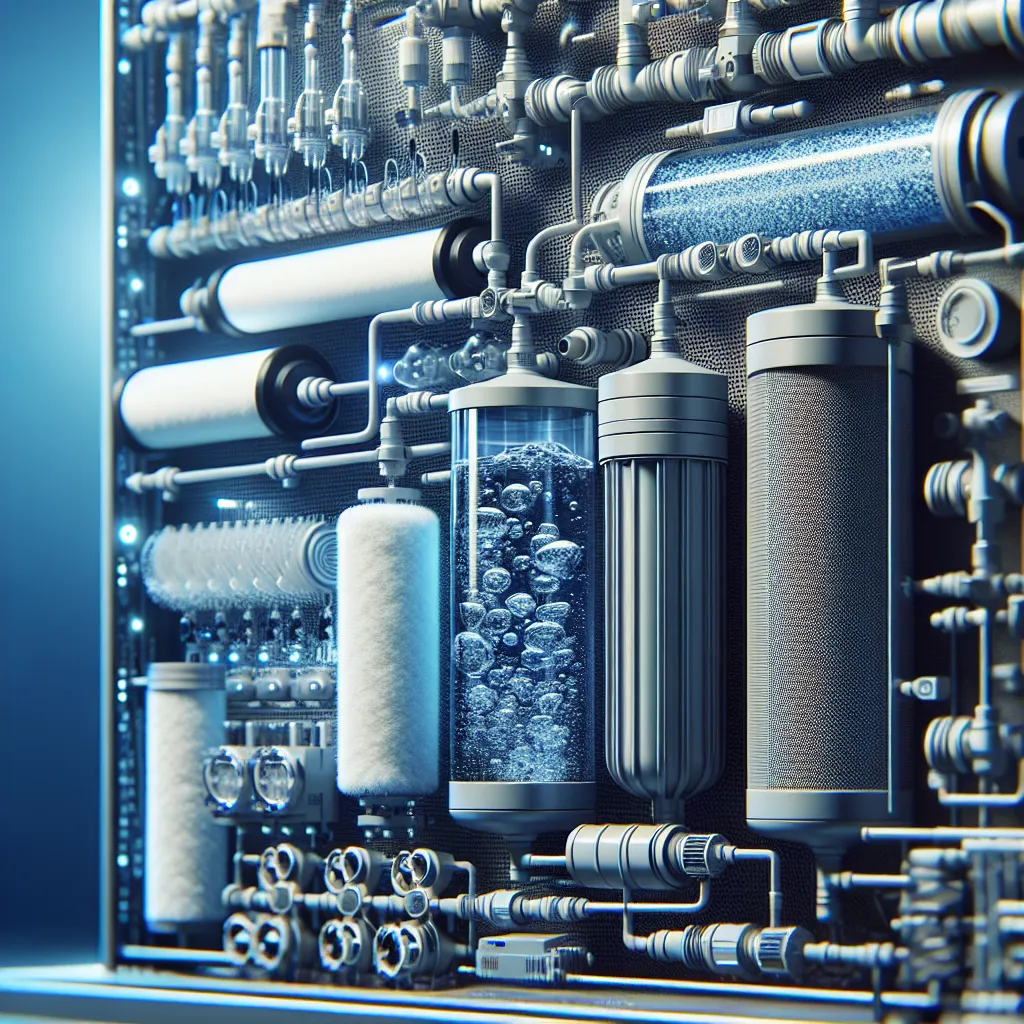The Importance of Clean Water for Human Health
Water is essential for human life, but it is equally important to ensure that the water we consume is clean and free from contaminants. The importance of clean water for human health cannot be overstated, as it plays a crucial role in various bodily functions and overall well-being.
Unsafe drinking water can lead to a wide range of waterborne diseases such as cholera, typhoid, and dysentery. These diseases are especially prevalent in developing countries where access to clean water is limited. Contaminated water can also harbor chemicals and pollutants that have long-term health effects, including various types of cancer, organ damage, and developmental issues.
Water purification is the process of removing undesirable chemicals, biological contaminants, suspended solids, and gases from water. This ensures that the water is safe for drinking, cooking, and personal hygiene. The science of water purification utilizes various methods such as filtration, sedimentation, and disinfection to eliminate impurities and make water potable.
Access to clean water is not only important for drinking, but also for sanitation and hygiene. Lack of clean water and adequate sanitation can lead to the spread of waterborne diseases, posing a significant risk to public health. In addition, clean water is crucial for agricultural and industrial purposes, making it a versatile and indispensable resource.
In conclusion, the significance of clean water for human health is undeniable. Ensuring access to safe and clean water through effective water purification methods is imperative for preventing waterborne diseases and promoting overall well-being. It is essential to continue researching and implementing advanced water purification technologies to safeguard public health and the environment.
Understanding Water Contamination: Sources and Risks
Understanding water contamination is crucial in the science of water purification. Contaminants in water can come from various sources, including industrial discharge, agricultural runoff, and natural geological formations. These contaminants pose significant risks to human health and the environment.
Industrial activities release a variety of pollutants into water bodies, including heavy metals, organic chemicals, and industrial by-products. These substances can have harmful effects on human health, such as causing cancer, reproductive disorders, and organ damage. Agricultural runoff, containing pesticides, fertilizers, and animal waste, can introduce harmful substances like nitrates and pathogens into water sources.
Natural geological formations, such as arsenic-rich rocks or high mineral content, can also contribute to water contamination. Arsenic, for example, is a potent toxin that can cause serious health issues when present in drinking water above recommended levels.
Understanding the sources and risks of water contamination is essential for developing effective water purification methods that can remove or neutralize these contaminants, ensuring access to safe and clean drinking water for all.
Innovations in Water Purification Technologies
Water purification technologies have come a long way in recent years, with innovative advancements revolutionizing the process of making water safe for consumption. One such innovation is the development of membrane filtration systems, which have greatly improved the efficiency and effectiveness of removing impurities from water.
Nanotechnology has also made significant contributions to water purification, with the creation of nanomaterials that can effectively remove contaminants at the molecular level. These advanced materials have opened up new possibilities for enhancing the purification process and ensuring high-quality, safe drinking water.
Another notable innovation is the use of ultraviolet (UV) light technology to disinfect water. UV light can effectively inactivate bacteria, viruses, and other microorganisms present in water, providing a chemical-free and environmentally friendly method of purification.
Furthermore, the development of desalination technologies has enabled the removal of salt and other minerals from seawater, making it suitable for consumption and agricultural use. This innovation holds great promise for addressing water scarcity issues in coastal regions and arid climates.
Overall, these innovations in water purification technologies represent significant strides towards ensuring access to clean and safe drinking water for populations around the world. As technology continues to advance, the future of water purification looks increasingly promising.
The Future of Sustainable Water Treatment Solutions
As the world population continues to grow and the demand for clean water increases, the future of sustainable water treatment solutions becomes a critical focus. The science of water purification has advanced significantly in recent years, offering promising technologies and strategies to ensure access to safe and clean drinking water for all. One of the key aspects of the future of sustainable water treatment solutions lies in the development of innovative and eco-friendly purification methods.
Nanotechnology is poised to play a significant role in the sustainable treatment of water. Nano-based filtration systems show great promise in efficiently removing contaminants and microorganisms from water, while also minimizing energy consumption and waste generation. Additionally, advancements in membrane technology allow for the development of highly effective filtration systems that can purify water with minimal environmental impact.
Furthermore, the integration of renewable energy sources into water treatment plants represents a major step towards sustainability. Harnessing solar, wind, and hydroelectric power to drive water purification processes not only reduces reliance on non-renewable energy sources but also contributes to lower operational costs and reduced carbon emissions.
Innovative approaches such as biofiltration and phytoremediation are also gaining attention as sustainable water treatment solutions. Harnessing the natural filtering capabilities of certain plants and microorganisms, these methods offer cost-effective and environmentally friendly alternatives to traditional water purification techniques.
Overall, the future of sustainable water treatment solutions relies on the continued advancement of scientific research, technology innovation, and global collaboration. By embracing eco-friendly purification methods, integrating renewable energy sources, and exploring nature-based solutions, we can work towards ensuring a sustainable and secure water supply for current and future generations.
